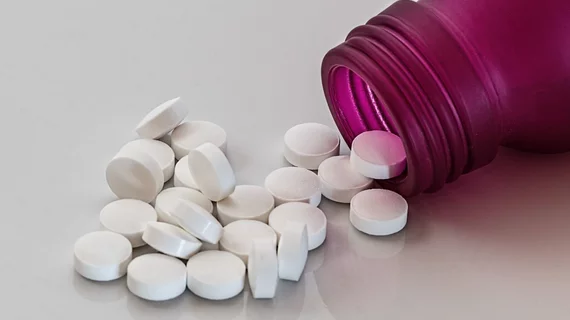Nearly half of U.S. adults are wrong about aspirin
Forty-eight percent of all U.S. adults incorrectly believe that they should be taking low-dose aspirin every day to minimize their risk of experiencing a heart attack or stroke, according to a new survey out of the University of Pennsylvania.[1]
Yes, doctors did recommend that adults take daily aspirin to protect against cardiovascular disease (CVD) in the past—but that was quite some time ago. In 2019, the American College of Cardiology American Heart Association released new guidelines saying heathy older adults should not be taking low-dose aspirin due to certain risks, including gastrointestinal bleeding. The U.S. Preventive Services Task Force even published separate recommendations in 2022 saying patients 60 or older should not be taking daily aspirin to prevent CVD, highlighting the lack of any real benefits.
Now, however, many adults still seem to think daily low-dose aspirin is beneficial, even when they are facing no other health problems.
The Annenberg Public Policy Center of the University of Pennsylvania organized the survey, focusing on answers from a nationally representative panel of more than 1,700 U.S. adults. Overall, 10% of respondents with no personal or family history of heart attack or stroke said they take low-dose aspirin every day. Another 2% said they take it a few times per week, and then 6% said they take it a few times per month.
“Habits backed by conventional wisdom and the past advice of healthcare providers are hard to break,” Kathleen Hall Jamieson, director of the Annenberg Public Policy Center and director of this survey, said in a statement. “Knowing whether taking a low-dose aspirin daily is advisable or not for you is vital health information.”
Another key takeaway from the survey was that younger patients appear to know more about the benefits and risks of taking daily low-dose aspirin when healthy. For example, 29% of healthy respondents with no family history of CVD who are between the ages of 18 and 39 understand that the risks of daily aspirin outweigh the benefits for someone in their circumstances. That is only true for 11% of adults in that same situation between the ages of 40 and 59, however, and just 7% of adults ages 60 and older.

